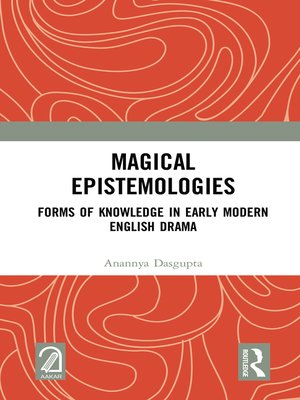
Sign up to save your library
With an OverDrive account, you can save your favorite libraries for at-a-glance information about availability. Find out more about OverDrive accounts.
Find this title in Libby, the library reading app by OverDrive.



Search for a digital library with this title
Title found at these libraries:
| Library Name | Distance |
|---|---|
| Loading... |
This book began with a simple question: when readers such as us encounter the term magic or figures of magicians in early modern texts, dramatic or otherwise, how do we read them? In the twenty-first century we have recourse to an array of genres and vocabulary from magical realism to fantasy fiction that does not, however, work to read a historical figure like John Dee or a fictional one he inspired in Shakespeare's Prospero. Between longings to transcend human limitation and the actual work of producing, translating, and organizing knowledge, figures such as Dee invite us to re-examine our ways of reading magic only as metaphor. If not metaphor then what else? As we parse the term magic, it reveals a rich context of use that connects various aspects of social, cultural, religious, economic, legal and medical lives of the early moderns. Magic makes its presence felt not only as a forms of knowledge but in methods of knowing in the Renaissance. The arc of dramatists and texts that this book draws between Doctor Faustus, The Tempest, The Alchemist and Comus: A Masque at Ludlow Castle offers a sustained examination of the epistemologies of magic in the context of early modern knowledge formation.
Please note: Taylor & Francis does not sell or distribute the Hardback in India, Pakistan, Nepal, Bhutan, Bangladesh and Sri Lanka.







